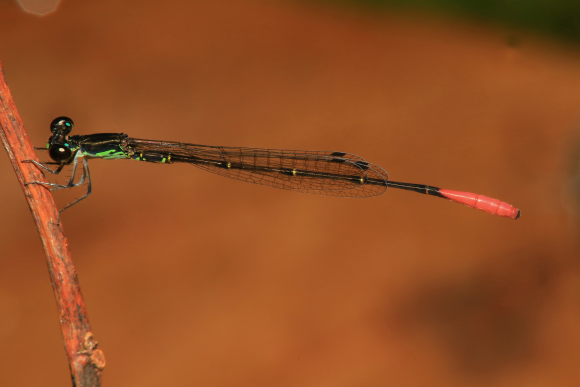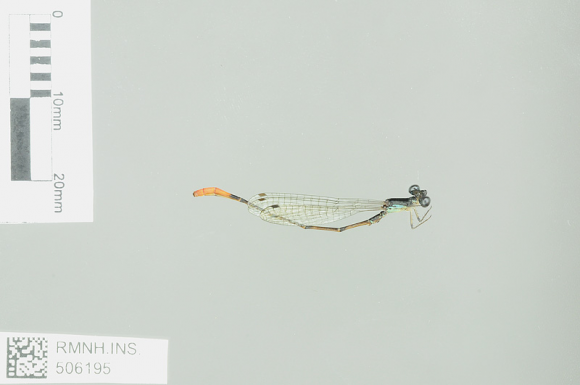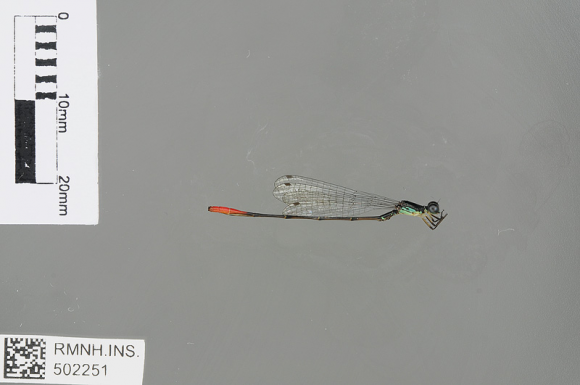Agriocnemis stygia Fraser, 1954
Congo Wisp
Synonyms:
- scientific: Mortonagrion stygium
Type locality: Eala, DRC
Diagnosis
Male is notably different to other African Agriocnemis species by (1) being restricted to swamp forest; (2) thorax never with antehumeral stripes or pruinosity; (3) distal border of quadrilateral aligned with both underlying cross-veins, anal vein running straight between them, rather than only being aligned with the 1st underlying cross-vein with the 2nd shifted distinctly proximal, creating a kink in the anal vein; (4) unique shape of appendages. [Adapted from Dijkstra & Clausnitzer 2014]
Habitat description
Standing and mostly temporary waters shaded by forest. Usually with coarse detritus and probably often blackwater, strictly avoiding fine emergents (like grass and sedge) favoured by most other species of genus. From 300 to 500 m above sea level.
Distribution

Male © Jens Kipping
 Appendages (lateral view) |
Map citation: Clausnitzer, V., K.-D.B. Dijkstra, R. Koch, J.-P. Boudot, W.R.T. Darwall, J. Kipping, B. Samraoui, M.J. Samways, J.P. Simaika & F. Suhling, 2012. Focus on African Freshwaters: hotspots of dragonfly diversity and conservation concern. Frontiers in Ecology and the Environment 10: 129-134.
Barcode specimen(s):

Male; Gabon, Haut-Ogoué, Plateau Batéké - vallée de la Léconi © Mézière, Nicolas, ANDRE GUENTHER,JENS KIPPING, RAIK MORITZ, HANNES KRAHNSTOEVER

Male; Democratic Republic of Congo, Province Orientale, © Dijkstra, K.-D.B.
References
- Fraser, F.C. (1954). New and rare species of Zygoptera from the Belgian Congo. Revue Zoologie Botanique Africaines, 50, 269-276. [PDF file]
- Pinhey, E.C.G. (1961). Dragonflies (Odonata) of Central Africa. Occasional Papers Rhodes-Livingstone Museum, 14, 1-97. [PDF file]
Citation: Dijkstra, K.-D.B (editor). African Dragonflies and Damselflies Online. http://addo.adu.org.za/ [2024-04-25].

